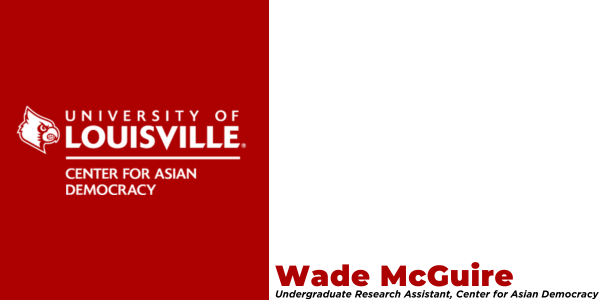Our People
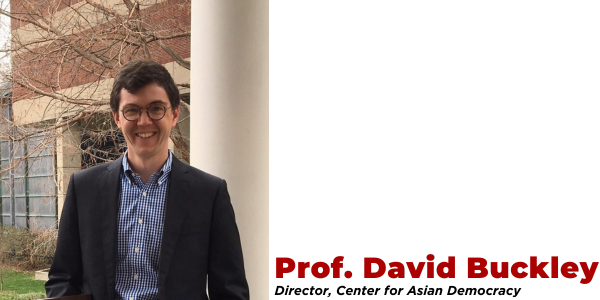
David Buckley is Associate Professor of Political Science, and Paul Weber Endowed Chair in Politics, Science & Religion at the University of Louisville, where he serves as the Interim Director of the Center for Asian Democracy. His research focuses on the comparative relationship between religion and democracy. His book, Faithful to Secularism: The Religious Politics of Democracy in Ireland, Senegal and the Philippines (Columbia University Press 2017), analyzes the emergence endurance of secular democracy in cases with politically active religious majorities. It received the International Studies Association’s 2018 Book Award for Religion and International Relations. He was a Council on Foreign Relations International Affairs Fellow (2016-17), serving as Senior Advisor in the Department of State’s Office of Religion in Global Affairs.
David is currently at work on two book manuscripts: one examining the changing place of religion in the U.S. foreign policy bureaucracy, and a second documenting the role of grassroots religious institutions in responding to violence associated with Rodrigo Duterte’s “drug war” in the Philippines. His research has been funded by the Social Science Research Council, APSA Centennial Center, Society for the Scientific Study of Religion, Notre Dame’s Global Religion Research Initiative, and the University of Gothenburg’s Program on Governance and Local Development (GLD). His work has appeared in leading journals of political science including the American Journal of Political Science, Comparative Political Studies, and Comparative Politics, as well as media outlets such as the New York Times, Washington Post and Wall Street Journal.
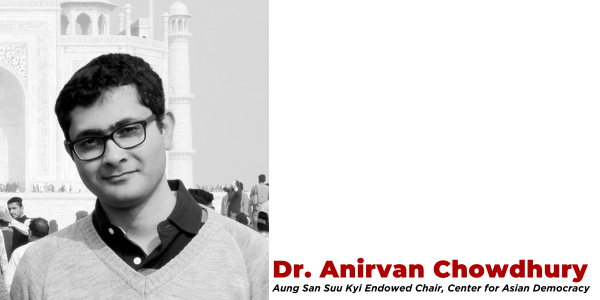
Anirvan Chowdhury (Ph.D., University of California, Berkeley) is an Assistant Professor of Political Science and the Aung San Suu Kyi Endowed Chair at the Center for Asian Democracy. He studies the political economy of development with a regional focus on South Asia, and a substantive emphasis on religion, gender, party politics, and democratization. His research examines the underlying causes of the ascendance of majoritarian and populist movements, and their implications for inter-group relations and political inclusion of marginalized groups, particularly women and ethnic minorities. He is currently working on a book project on how religiously conservative parties mobilize women. This research has received several awards, including best dissertation awards from the American Political Science Association’s organized sections in Political Economy (Mancur Olson award, 2024); Religion and Politics (Aaron Wildavsky award, 2024); Political Communication (Thomas E. Patterson award, 2024); and Women, Gender, and Politics (2024). He earned a PhD in political science at UC Berkeley (2023), and was a postdoctoral fellow at Harvard University’s Weatherhead Center for International Affairs (2023-24). Area of focus: Comparative Politics, Religion, Gender, Political parties, South Asia
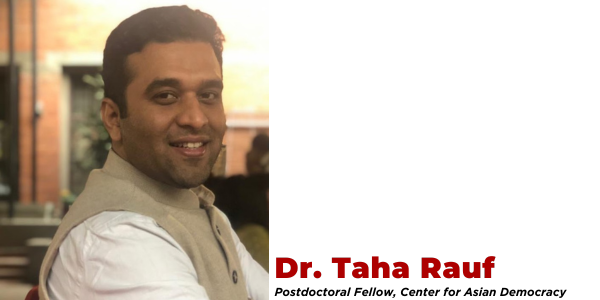
Taha Rauf (Ph.D., University of Michigan) serves as the Center for Asian Democracy’s Postdoctoral Fellow. Dr. Rauf studies the divergent implications of historical religious institutions for long-run development and democratic performance. His research involves the use of census-level administrative data from multiple sources across decades to develop large observational village-level datasets for Sufi Khanaqahs in India. This allows for rigorous statistical analysis and causal inference with multiple placebo tests and instrumental variable analysis, illuminating the channels of persistence. In addition to quantitative methods, he employs multi-site and multi-method qualitative fieldwork, including archival research, participant observation, and in-depth interviews, to elaborate on the institutional differences in coordination mechanisms.
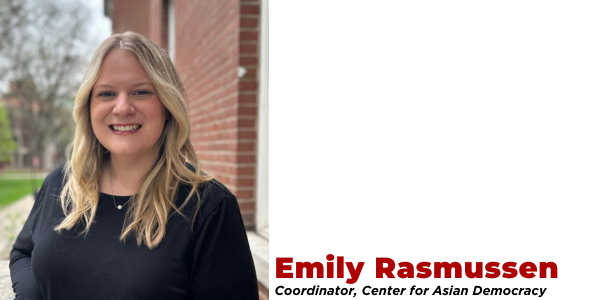
emily.rasmussen@louisville.edu
Andrew Meiners
Administrative Associate, Center for Asian Democracy
andrew.meiners.1@louisville.edu
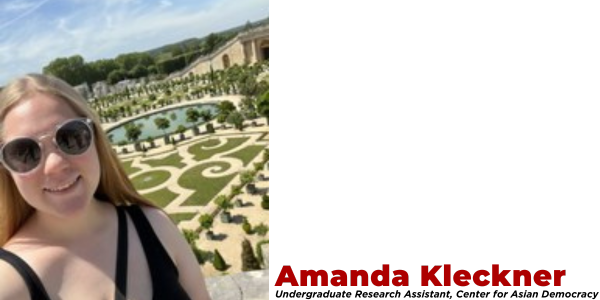
amanda.kleckner@louisville.edu
Amanda Kleckner is a political science major and a junior at UofL. At CAD, she works in research support for projects exploring elections and religion in the Philippines. She enjoys cooking, photography, and getting into political arguments with her family.
